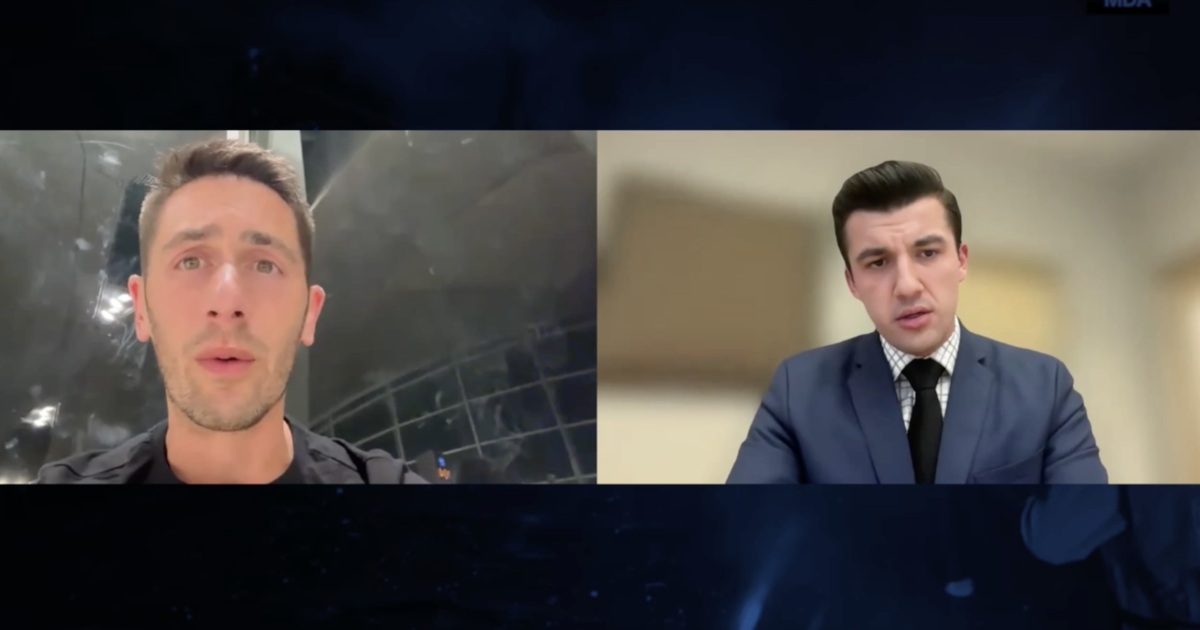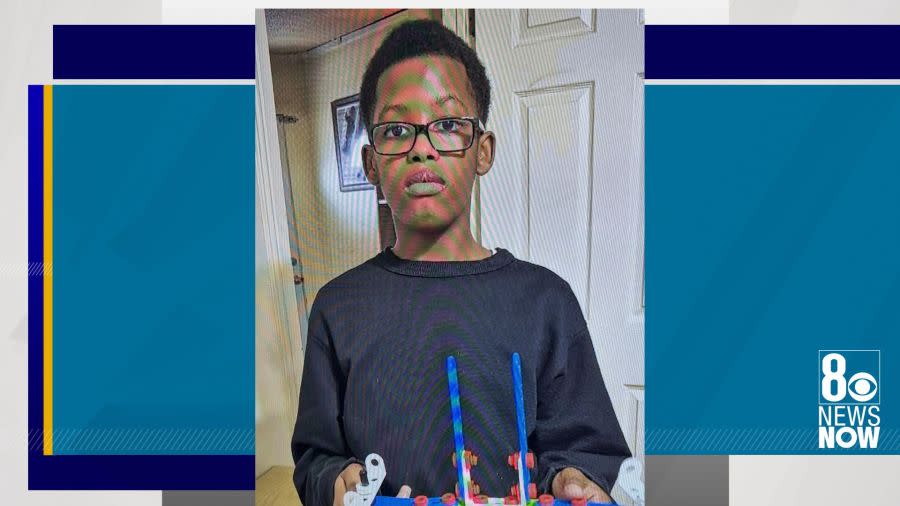Local Las Vegas resident returns home after experiencing missile attacks in Israel

Alex Woogmaster describes 11 days of nightly rocket fire and bomb shelter runs during recent escalation
A longtime Las Vegas resident has safely returned home after spending nearly two weeks in Israel during a period of intense missile attacks and rocket fire that forced him and other civilians into nightly runs to bomb shelters and safe rooms.
Alex Woogmaster, who has called Las Vegas home for more than 12 years, shared his harrowing experience just before boarding his flight back to Nevada from Jordan, where he had traveled to safely exit the conflict zone. His firsthand account provides a rare glimpse into daily life for civilians caught in the middle of escalating Middle East tensions.
Nightly terror and daily resilience
During his 11-day stay in Israel, Woogmaster experienced the reality of life under constant threat. The unpredictability of the attacks created a state of perpetual vigilance that disrupted normal sleep patterns and daily routines.
“Every night is pretty rough. Rocket fire starts either at 9 o’clock or 7 p.m. or midnight, or 3 in the morning,” Woogmaster explained, describing the randomness that made it impossible to prepare mentally for each night’s potential dangers.
The Israeli warning system gives civilians just 90 seconds to reach safety once incoming missiles are detected. “You wake up and you have a minute and a half to run down to a bomb shelter or to a safe room if you have it in your apartment,” he said, highlighting the split-second decisions that became routine during his stay.
This brief warning window represents one of the most challenging aspects of the current conflict for civilians. Unlike natural disasters that may provide hours or days of advance warning, missile attacks require immediate response with no time for hesitation or gathering personal belongings.
Maintaining normalcy amid chaos
Despite the nightly terror, Woogmaster was struck by the resilience of Israeli civilians who worked to maintain some semblance of normal life during daylight hours. The contrast between night and day became a defining characteristic of his experience.
“Usually during the day things are kind of back to normal. Restaurants and cafes are opened up again and people are spending time with each other in the street because they need to,” he observed. This determination to continue daily life represents a form of resistance against the psychological impact of the attacks.
The social aspect of this resilience particularly impressed Woogmaster. Rather than isolating themselves, people sought connection and community during the safer daylight hours. Restaurants and cafes serving as gathering places demonstrates how communities adapt to maintain social bonds even under extreme circumstances.
An unexpected connection
Perhaps most surprisingly to Woogmaster himself, his time in Israel during this crisis period strengthened rather than weakened his connection to the country and its people. Rather than viewing his experience as purely traumatic, he described it as unexpectedly affirming.
“I really didn’t want to leave. My time in Israel the last 11 days has been so much more affirming than I would have possibly expected. I feel much more part of the people, much more part of the existence of the country, and it’s with a very heavy heart that I left,” he shared.
This emotional response highlights how shared adversity can create powerful bonds between individuals and communities. For Woogmaster, experiencing the conflict alongside Israeli civilians created a sense of solidarity that transcended his status as a visitor.
The reality of modern warfare
Woogmaster didn’t shy away from describing the severity of the weapons being used in the current conflict. His observations provide insight into how modern military technology affects civilian populations.
When discussing a hospital attack that injured more than 200 people, he characterized the assaults as “utterly inferior,” emphasizing the deliberate targeting of civilian infrastructure. “The kind of firepower that is being used against the country right now, ballistic missiles now, are made to cause the most pain possible and the most horrific impact,” he explained.
This assessment underscores the evolution of modern warfare, where precision weapons can target specific buildings while maximizing psychological impact on entire populations.
Evacuation options for Americans
As the situation intensified, Woogmaster noted that evacuation options were becoming available for American citizens and other foreign nationals who wanted to leave the region. These emergency measures reflect the international community’s recognition of the deteriorating security situation.
“There are cruise ships, there’s at least one that I know of, that is going from Cyprus to one of the ports in Israel, and they are going to begin resuming and begin offering flights, they’re considering them emergency flights out of the country for Americans and for other nationals,” he reported.
These evacuation options represent standard diplomatic responses to crisis situations, providing safe passage for non-combatant civilians who wish to leave conflict zones.
Perspective on the conflict
Woogmaster offered his perspective on the broader conflict, emphasizing his view that the current situation represents more than a simple territorial dispute. He framed the conflict in terms of governmental systems rather than ethnic or national divisions.
“This is not Israel’s war against the people of Iran, but rather Israel’s war against a regime that has taken over and sworn for the destruction of Israel,” he stated, drawing a distinction between civilian populations and political leadership.
This perspective reflects a common viewpoint among those who see the conflict through the lens of governmental policy rather than popular will, though perspectives on Middle East conflicts vary widely among observers and participants.
Continued support from Las Vegas
Now safely back in Las Vegas, Woogmaster has indicated his intention to continue supporting Israeli communities from his Nevada home. This commitment demonstrates how personal experiences in conflict zones can create lasting connections that transcend geographic boundaries.
For Las Vegas, which has significant Jewish and Middle Eastern communities, Woogmaster’s experience provides a direct connection to events that might otherwise seem distant from daily life in Nevada. His story illustrates how global conflicts can personally affect local residents and create ripple effects in communities far from the conflict zones.
A Las Vegas perspective on global events
Woogmaster’s experience serves as a reminder that Las Vegas residents maintain connections worldwide, and global events can directly impact members of our local community. As an international destination, Las Vegas is home to people from diverse backgrounds who maintain ties to regions around the globe.
His safe return also highlights the importance of staying informed about State Department travel advisories and maintaining communication with family and friends when traveling to regions experiencing political instability.
The story underscores the human dimension of international conflicts, moving beyond political analysis to show how ordinary people navigate extraordinary circumstances. For Las Vegas readers, it provides a personal perspective on events that continue to shape international relations and affect communities worldwide.
Las Vegas residents planning international travel, particularly to regions experiencing political tension, are encouraged to register with the State Department’s Smart Traveler Enrollment Program (STEP) and monitor current travel advisories.
Image Source: https://www.ktnv.com/news/las-vegas-resident-makes-it-back-home-after-being-in-israel-during-iranian-missile-strikes
Category: Local News, Breaking News, Military & Veterans
Subcategory: Community Stories
Date: 06/20/2025

